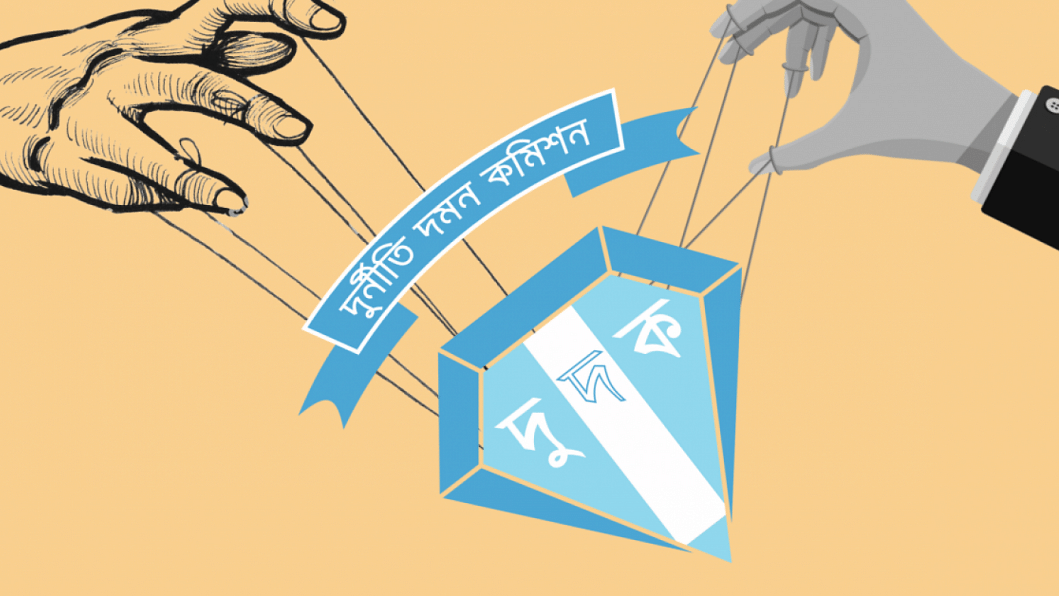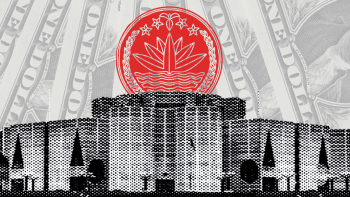IMF’s conditions on governance and corruption - rhetoric or reality?

Among numerous conditions that the Bangladesh government has agreed to in order to secure the IMF loan of USD 4.7 billion – to be disbursed over 42 months – is a set of pledges to strengthen governance and control corruption (SGCC). If given due seriousness, SGCC is not merely a standalone but a cross-cutting prerequisite for nearly every other deliverable under the reform package.
Contained in paragraph 31 of the Attachment-I of Bangladesh's letter of intent of December 23, 2022, these commitments are nothing new, especially in view of the highest level of political and governmental pledge repeatedly announced about strengthening governance, including zero tolerance against corruption. Failure to translate these into reality has now converted the government's own commitments into IMF conditions.
As unspecific and sketchy as the paragraph is, it does contain a few notable items which, if effectively implemented, may open up opportunities to at least partially challenge the deep and fast-spreading menace of governance deficit and corruption.
The pledges include: a) moving towards international best practices on anti-money laundering by enhancing risk based supervision (RBS) covering cross-border activity and trade-based money laundering; b) amending the Companies Act to facilitate beneficial ownership transparency (BOT) in the financial sector and strengthen central bank governance and fiscal transparency; and c) combating corruption by safeguarding the independence of the Anti-Corruption Commission (ACC). The key question is regarding if and to what extent any substantive difference will be made.
SGCC have long been part of the government's own pledges to the people, especially since the 2008 national election, reflected in many ways including in the election manifesto, Vision 2021, followed by 2041, and in the SDG 16. Specific items like actions to control money laundering and promote beneficial ownership transparency, central bank governance, and fiscal transparency have long been among the key issues of voice and advocacy in civil society.
The irony is that, if the government could have delivered its own SGCC pledges, especially in terms of grand corruption, banking sector scandals, and money laundering (including trade-based and other forms of illicit international financial transfers), there would be no need to opt for this loan from the IMF.
If Global Financial Integrity reports on trade-based annual illicit transfers of USD 8.75 billion out of Bangladesh during 2008-2015 could be updated consistent with the prevalent trend, the annual loss of Bangladesh on account of money laundering through invoicing fraud alone would be no less than USD 12 billion. Taking into account other forms of money laundering like hundi, it is obvious that an amount several times higher than the receivable from the IMF over 42 months could be annually available domestically.
That the IMF conditions include money laundering and other cross border financial activity, BOT, central bank governance, and fiscal transparency is therefore unsurprising. Hardly anything effective has been done in this regard over the years, despite the fact that the bank and non-bank financial sector of Bangladesh has long been devilled by scandalous corruption, including deliberate loan default, swindling, and money laundering. Hardly any of the kingpins of the scandals has been brought to account, while in most cases fake and anonymous entities have been used as enablers of the scandals.
As a result of unscrupulous secrecy of the real beneficiaries, those involved in banking sector corruption and money laundering have not only evaded accountability, but have also enjoyed ever-increasing lobbying power to extort more and more concessions. It is therefore pertinent to pledge to amend the Companies Act to facilitate BOT in the financial sector and strengthen central bank governance and fiscal transparency.
If there is the necessary political will – and this is a big if – to fit the purpose, not only legal provisions but necessary institutional structure (including the national register of BOT) must be created to facilitate the disclosure of who ultimately owns, controls, and benefits from companies or other entities. BOT also needs to be accompanied by the adoption of the Common Reporting Standard (CRS), already in practice in 120 countries, for the automatic exchange of national and international financial transactions which will facilitate tracking money laundering and tax evasion.
The importance of safeguarding the ACC's independence is a no-brainer. The key to the ACC's effectiveness in delivering its mandate is independence, especially when setting the example that, in handling allegations of corruption, it is guided by equality before law, and not by the status or identity of the individual depending on their political, governmental, or other connections.
Ever since the ACC's birth, successive regimes have hardly shown sufficient evidence to have reconciled with its legally mandated authority to hold political, governmental, and business power-holders to account. Nor has the ACC succeeded in overcoming its mindset of operating like a government body.
Everything necessary to maintain bureaucratic control over the ACC, through placing deputed officials on the most senior seats, has been done. The ACC and the government have found common ground with regard to curtailing the ACC's independence. The Commission, for instance, found no problem in the repeated attempts to create an obligation for the ACC to seek government approval before taking public officials into custody for corruption investigation, ignoring the fact that this is contradictory to the constitutional provision of equality before law.
Against this backdrop, an office order on the delegation of administrative and financial authority, issued on January 18, 2022, has sweepingly assigned to the ACC secretary some key elements of the Commission's executive power, which were vested by law in the Commission understood as the Chair and other Commissioners. The order practically invalidated section 3(2) of the Act that stipulates ACC to be an independent and impartial organisation.
Whether or not effective actions will be taken to fulfil the pledge of SGCC will depend not on how the government plans to satisfy the IMF, but on the commitment and capacity of the political and bureaucratic authorities to prioritise public interest over anything else.
Iftekharuzzaman is executive director of Transparency International Bangladesh (TIB).

 For all latest news, follow The Daily Star's Google News channel.
For all latest news, follow The Daily Star's Google News channel. 










Comments